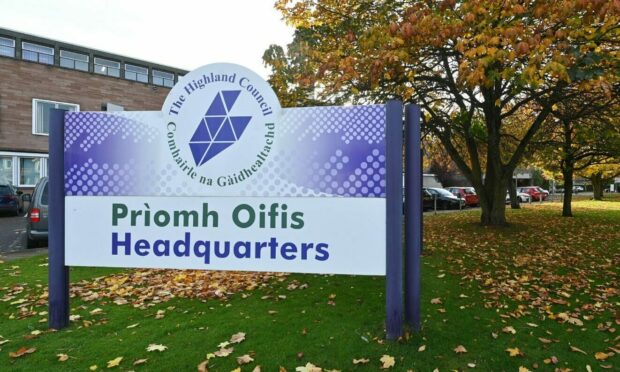Highland Council has been told to improve its fostering, adoption and adult placement services by the Care Inspectorate.
Three reports published this week show Highland Council has been graded as weak by inspectors who are planning follow up visits to make sure things have improved for those who use the service.
Overall, inspectors said services suffered from “drift and delay” and that service users – including children and young people – were not always aware of why they were in foster care.
Delays meant that children and young people waited longer than necessary to be fostered and adopted due to poor notes and paperwork.
It said paperwork in regard to the vulnerable people the services supported were blank in some cases, and there was a lack of detail on what the children, young people and adults wanted.
Fostering suffered ‘drift and delay’
Highland Council‘s fostering service, adoption service and adult placement service were given short notice that it would be inspected at its Glenurquhart Road headquarters in Inverness on September 12.
Overall, the service in each area was graded as “weak” or two on the scale. The staff team was rated as “good”or three across the board.
On evaluating quality, the Care Inspectorate use a six point scale where one is unsatisfactory and six is excellent.
Inspectors said children and young people “experienced supportive, enduring relationships with fostering families that provided them with a sense of belonging”.
However, it said children’s safety and wellbeing “may have on occasion been compromised by a failure to identify and respond to some concerns”.
A report into the inspection said: “Young people’s sense of identity was compromised by poor quality information about their history.
“This meant that young people were not supported to understand the life story and history and understand reasons for entering care which negatively impacts on their sense of identity.”
It continued: “We were also provided with a Child Plan Review Action Record. Not all sections were completed in the plans we received, including the views of the child.
“In some of these records we noted a repetition of the plan and action points from one review to another, often focusing upon the need for placement stability, life storywork and management of family time.
“This added to the drift and delays in planning experienced by children and we did not see evidence of drift and delay being addressed.”
Children’s safety was not prioritised
A report into adoption services found children and young people’s safety and wellbeing was compromised by “a failure to identify and respond to concerns”.
It said: “Children and young people’s welfare and safety was not prioritised.
“An important part of quality assurance relates to the monitoring, reporting and analysis of serious incidents. We heard of, and read about, a number of significant incidents which should have, but had not, been notified to the Care Inspectorate.”
“Almost all children who were in need of permanent alternative care, were experiencing significant delays in their arrangements for permanent care to be secured.
“The service should make significant improvements in achieving positive outcomes for children in need of permanent care.”
Inspectors added: “Young people’s sense of identity was compromised by poor quality information about their history.
“This meant that young people were not supported to understand the life story and history and understand the reasons for entering care which negatively impacts on their sense of identity.”
Young people did not have ‘clear information’
In the adult placement service, young people who were moving on from care and fostering “did not have clear information about their rights”
Inspectors found that “discussions around transition were not begun at an appropriate stage with engagement from the Throughcare Aftercare service”.
The report said: “From our case sample, we saw evidence that carers were not being approved as continuing care carers in line with legislation.
“We assessed there was an inconsistent overview of key processes, such as unannounced visits, foster carer training and incidents and accidents and this had implications on how well the service was managed.
“The service needs to improve how social work staff are supported and how practice issues are identified at an earlier stage.
“We saw examples of delays in decision making caused by information not being available for panel to consider or information being presented which was incomplete.
“This impacted negatively on outcomes for children and young people by further delaying key decisions about their care.”
Staffing levels evaluated as good
A Highland Council spokesman said: “While the inspection found staffing strengths evaluated as good, The Highland Council acknowledges that there are improvements to be made.
“Those involved in the delivery of services will continue to be supported to ensure the best possible outcomes for children and young people across the Highlands.
“Our foster carers are committed to delivering the best care for children and young people who have faced adversity in their young lives and we need to build on those strengths and to encourage more people to come forward and be part of this journey for improvement.”

